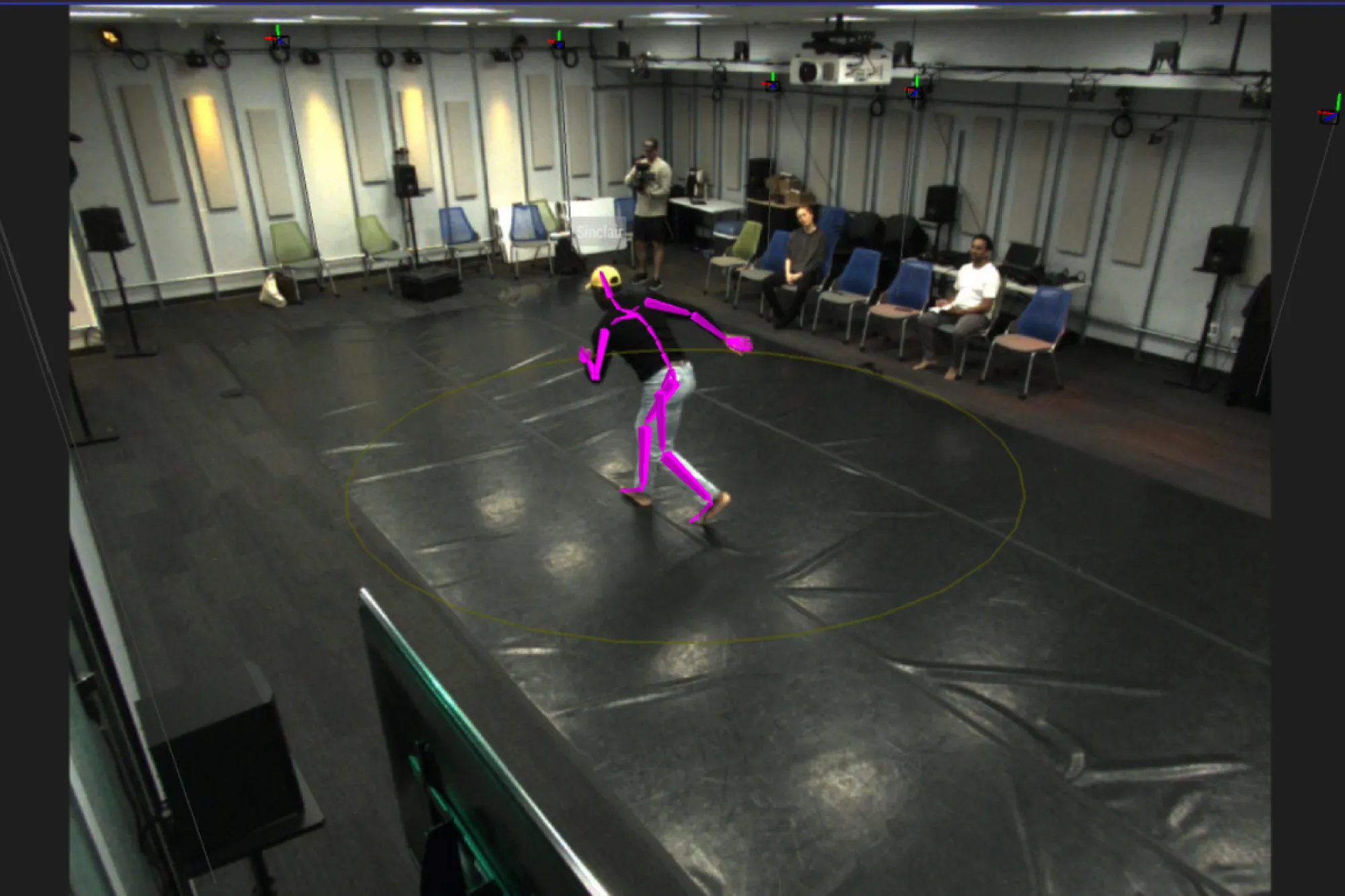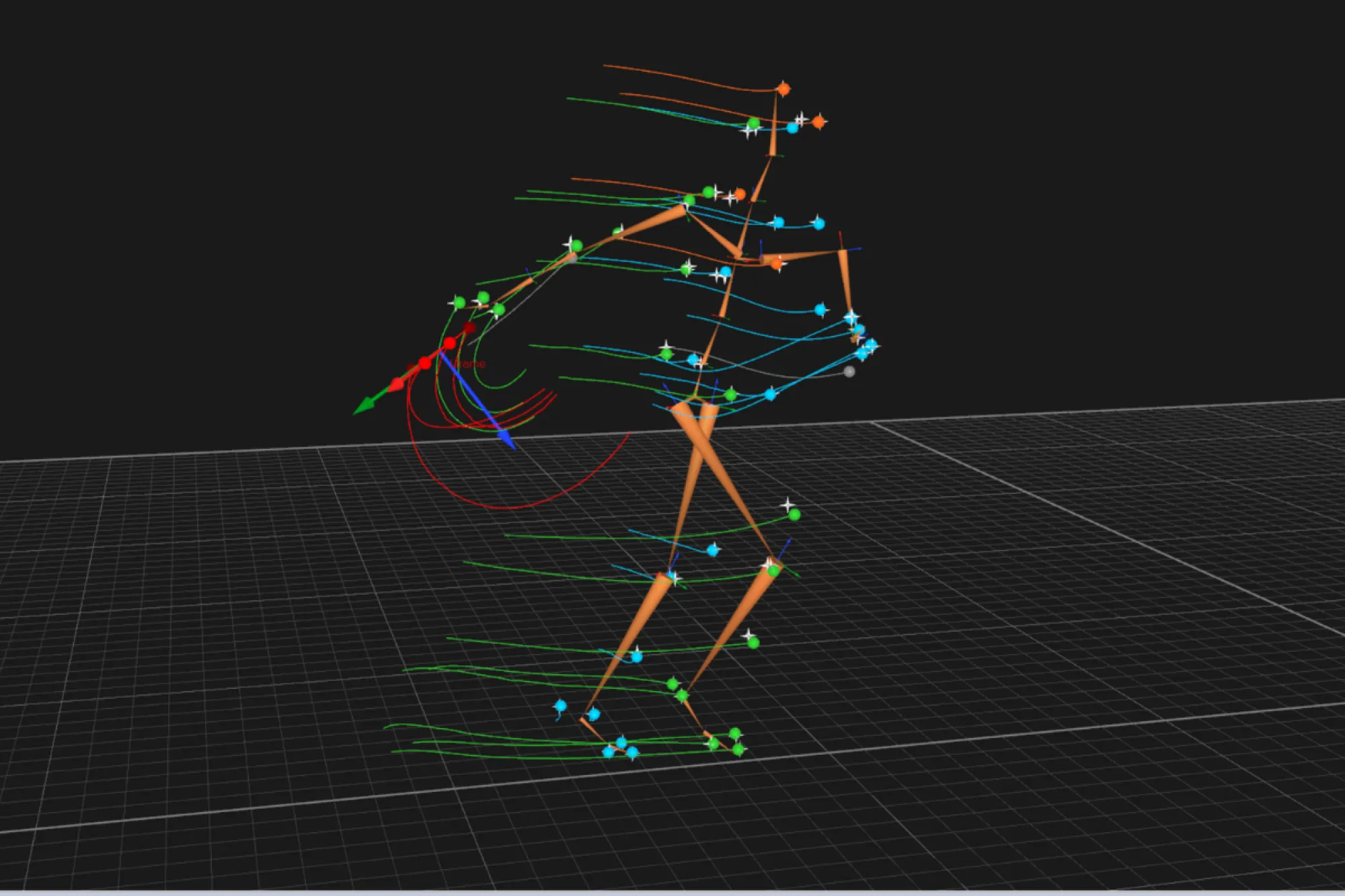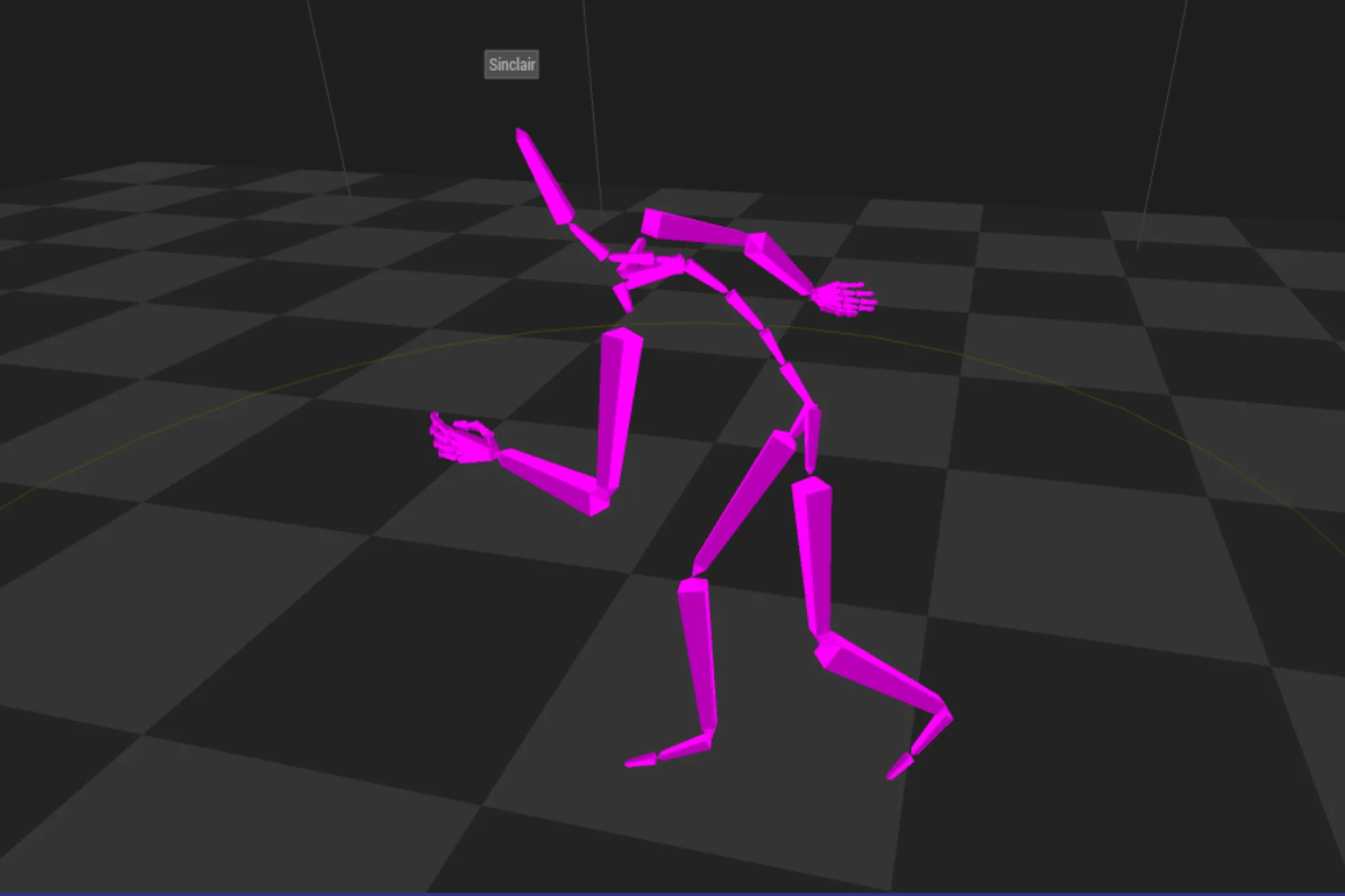Lab for Immersive Media Technology to help support more efficient, cost-effective ways of tracking human movement

by Gabrielle Hernandez
A key indicator of innovation is when technology and creativity converge, and Department of Arts and Entertainment Technologies Chair Michael Baker is spearheading a project that uses motion-tracking technology to address real-world health and wellness challenges.
Baker’s project aims to build a tool powered by artificial intelligence that automates a method of assessing human movement. In the long term, Baker envisions this research supporting accessible, cost-effective tech solutions in health and performance industries — solutions that rely less on expensive data collection and more on adaptable, creative input systems.
“Collaboration is how you bring unique perspectives and the best minds together to solve interesting problems,” said Baker, emphasizing the principle that defines his work. “I’m always looking to partner with others and connect with experts to find new ways of creatively approaching problems.”

This spring, Baker received a prestigious Texas Proof of Concept (POC) Award — one of UT Austin’s most competitive honors for research to support the project. The award usually goes to faculty members in STEM fields, and Baker is the first person in the College of Fine Arts to be awarded.
The award will support the creation of a synthetic data generator that uses small samples to create large, high-quality data sets for training AI systems for future use in physical therapy, sports medicine and wellness technology. The proof-of-concept phase focuses on developing motion capture technology to simulate “good” and “bad” motion models.
The research will be conducted heavily within the Lab for Immersive Media (The LIM), which Baker founded at UT. The LIM is a state-of-the-art facility combining sub-millimeter motion capture, spatial audio and immersive video projection, making it ideal for testing and generating the motion data his system will rely on.

Presented by the University’s Discovery to Impact, this award supports early-stage technologies that show promise for real-world application and commercialization. Baker qualified by proposing a synthetic data system that leverages game design methods to generate human motion data from minimal physical inputs, aptly named Minimal Motion, Maximum Impact.
Awardees receive funding up to $25,000 to demonstrate the feasibility of their innovations and accelerate their development. Baker’s approach stood out for its potential to dramatically reduce the time and cost of training machine learning systems, especially those focused on interpreting human physical or emotional behavior. With Discovery to Impact’s support, Baker will continue investigating how human biomechanics and robotic motion can support emotion and motion analysis in various fields.
“People often struggle to grasp what’s possible until they can see it, touch it, play with it. That’s where proof of concept becomes essential,” said Doreen Lorenzo, assistant dean of the School of Design and Creative Technologies. “It brings abstract ideas to life, making the impact and potential real and tangible.”
Baker’s award highlights the growing role the arts play in advancing tech innovation at UT. Coming from the only department within the College of Fine Arts to offer a Bachelor of Science degree, this project exemplifies how creative disciplines, like game design, can inform cutting-edge research in AI and health care.
Taking his background in 3D character animation and game design and blending it with his ongoing AI research, Baker has developed a new approach to synthetic data generation — one that he sees as “a marriage of game content and game techniques, with data sets for machine learning and applications.”
“In the old days, we couldn’t process too much input, but now we can process a full skeleton, so there are all these amazing possibilities that come through the state of technology right now,” Baker said.
According to Lorenzo, the School of Design and Creative Technologies is committed to transformational research that bridges innovation and creativity.
“It’s especially meaningful that Professor Baker received this award, not only because of its recognition, but because it reflects his deep understanding of the powerful intersection between technology and creativity,” Lorenzo said. “His work exemplifies how this fusion is shaping the future of education, innovation and the arts.”
Gaby Hernandez is the communications manager for the School of Design and Creative Technologies.

